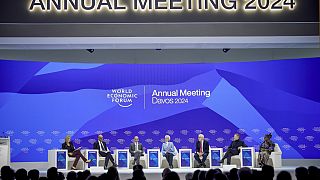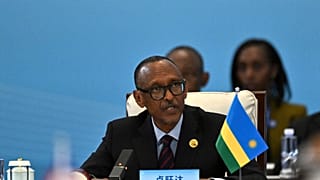Morocco
Experts in emerging technologies have called for upskilling and reskilling in the use of artificial intelligence (AI) within academia in Africa. The call comes as the AI revolution is underway, with tremendous potential to transform digital economies, including those in the Global South.
Speaking at the Deep Tech Summit in the university town of Benguerir, Morocco, Khalid Badou, Chief of Staff and Director of Institutional Affairs at UM6P (Mohammed VI Polytechnic University), said that as AI becomes inevitable, it is important to adopt and adapt it to meet the needs of the education sector while establishing the necessary policies and regulations to ensure its ethical use.
According to Badou, UM6P has become the first university on the continent to adopt Openai's ChatGPT and is already seeing the impact of using this transformative tool, once feared by many for its potential to disrupt academia and the education sector.
However, Badou believes that while UM6P is pioneering in this field, the African education sector as a whole has a significant opportunity to seize.
“Across the world, everyone is starting from the same point; everyone is discovering what AI can do, how to manage it, and trying to understand how it will impact our daily lives—in industry, in universities, and beyond.”
“Today, we’re all leapfrogging at the same time. This presents an opportunity not just for us, but for everyone,” he added.
AI innovation can be transformative for Africa
The summit, themed “Redefining Progress: How AI is Transforming Innovation in Deep Tech,” aimed to explore and encourage collaborative AI experiences through brainstorming sessions and the testing of new ideas.
Badou said that with the many benefits of deep tech, spanning health, fintech, and agriculture, AI can become a key driver of socio-economic development in Africa.
“Africa should not wait for others to draft a code of conduct on AI covering various aspects before embracing it; it must create its own,” he emphasised.
Many experts and analysts in the tech sector also pointed out that with the continent’s digitally savvy youth population, AI has the potential to be just as transformative for Africa as infrastructure investments, especially in areas like food security and healthcare.
Last year, the United Nations Development Programme (UNDP) estimated that AI is expected to contribute $15.7 trillion to the global economy by 2030. However, only 10% of that contribution is expected to be felt in the Global South.
Jalal Charaf, Chief Digital and AI Officer at UM6P, believes this figure could be much higher if structural infrastructure gaps were addressed.
Governments and responsible organisations need to provide greater access to infrastructure. If more people have internet access, they already have a large part of the tech infrastructure needed to test and use AI,” he said.
Internet access and connectivity
According to the latest 2024 data from GSMA on the state of mobile internet connectivity, only 30% of Africans used mobile internet in 2023, while a mobile broadband network covered 59% of the continent’s population.
This makes Africa the continent with the largest usage gap and the largest coverage gap globally—15%—which, according to experts, must be addressed to unlock AI’s potential and adopt its solutions.
“We also need another kind of infrastructure: intellectual infrastructure. If African leaders do not understand AI, it will show. They are responsible, and they must educate and upskill themselves to drive results,” said Charaf.
At the institutional level, the African Union (AU) says it is working to build on the momentum generated so far in the emerging sector and sets standards for data sovereignty.
The continental AI strategy calls for unified national approaches among AU member states to navigate the complexities of AI-driven change.
Lavina Ramkissoon, AU Ambassador for AI, Ethics, and Digital Transformation, says that despite the growing momentum, more commitment and bolder political will are needed at the in-country levels to ensure effective implementation of AI policies.
“Africa must unite and define what AI means for the continent, just as we have seen in China, the US, and EU regions,” she said.
As outlined in its AI Plan of July 2024, the AU aims to “create a regional fund for the responsible development of AI by mobilising regional and international development funds, along with private and philanthropic investments.”
In April, around 52 nations signed a declaration announcing the creation of a $60 billion AI fund at the Global Summit on Artificial Intelligence for Africa, held in Kigali, Rwanda.
However, details about its governance, spending, and deployment are yet to be disclosed.







![Artificial intelligence: where does Africa stand? [BusinessAfrica]](https://static.euronews.com/articles/stories/07/23/13/28/320x180_cmsv2_7f048366-1c9b-5200-9fcd-0b852e878152-7231328.jpg)






Go to video
Rwanda to test AI-powered technology in clinics
01:00
Robots wow crowds at Consumer Electronics Show in Las Vegas
01:00
AI takes center stage at Consumer Electronics Show 2026 in Las Vegas
11:18
Narrative Sovereignty: Africa Reclaims Its Global Voice {Business Africa}
01:42
Mali uses AI to teach school children in Bambara
05:00
How Japan’s food tech innovations target global food security challenges